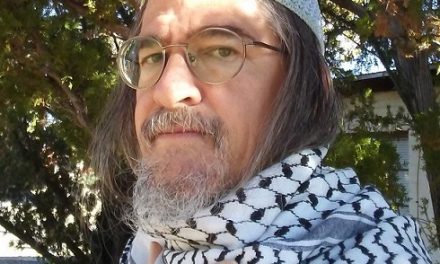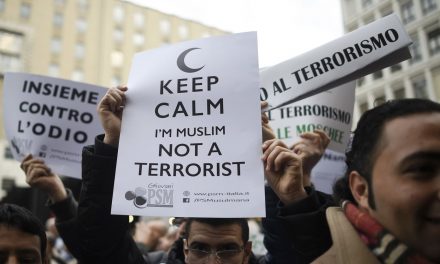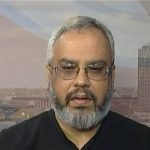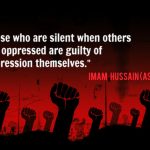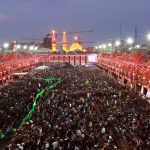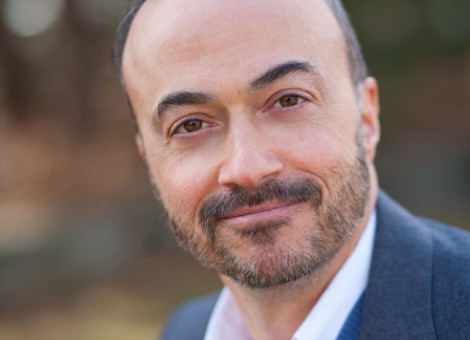
In an interview with Shia Followers, Robert Fantina, a pro-Palestine activist, said the BDS movement “will continue to grow in the U.S. and around the world, despite U.S. and Israeli efforts to stop it.”
“The BDS and related movements are vital for Palestinian freedom. Many states in the U.S. have, indeed, banned BDS, but these bans will never survive a court challenge; they are simply unconstitutional,” he said.
Following is the full transcript of the interview:
The U.S. embassy move to Jerusalem has drawn widespread condemnation from all over the world. What does this move mean for the future of the Palestinian cause?
Robert Fantina: The fact that this action has been condemned throughout the world is a positive sign, along with the almost universal criticism that Israel has received as a result of its brutal treatment of Palestinians protesting at the border. Yet people of conscience around the world cannot stop their efforts on Palestine’s behalf. One or two other countries have announced their plans to follow the U.S. in violating international law, and moving their embassies to Jerusalem; the fact that the U.S. has done it gives ‘permission’, in a sense, for other countries to follow.
While the U.S. has vetoed several resolutions about the embassy move and Israeli violence, in the United Nations Security Council, such measures have passed overwhelmingly in the General Assembly. This further isolates both the U.S. and Israel on the world stage.
Since the U.S. embassy relocation, Palestine has been the scene of widespread protests, with the Israeli regime brutally attacking the protesters. What would be the outcome of these events and how would they impact the international community?
Robert Fantina: These brutal attacks have been widely condemned, with only the U.S. and Israel defending them. Israel has clearly violated international law by shooting unarmed men, women and children, including medics who were wearing clothing clearing showing who they were. These outrages have focused world attention on Israel and Palestine.
Unfortunately, with the U.S. vetoing any Security Council resolutions critical of Israel, it does not appear that these horrors perpetrated by Israel will result in any real change for the Palestinians. The recent resolution that passed overwhelmingly in the General Assembly instructed U.N. Secretary General António Guterres to develop ways of protecting the Palestinians from Israeli aggression. This might mean a U.N. peacekeeping force, but any such force would need approval by the Security Council, where the U.S would certainly veto it.
While the resolutions in the General Assembly, unlike those in the Security Council, are non-binding, they do help to increase awareness of Israel’s many crimes against humanity. The Boycott, Divest and Sanction (BDS) movement continues to grow, and Israel’s crimes, along with U.N. reactions, will further strengthen that movement. This, in time, will certainly benefit the suffering people of Palestine.
What’s the significance of the Palestinian cause in our time? Why should we focus on Israeli regime’s human rights violations instead of other issues?
Robert Fantina: The cause of Palestinian freedom is the civil rights and human rights issue of our time. History will judge this generation harshly if it fails to achieve freedom for the Palestinians.
Certainly, there are many other nations with dismal human rights records; Saudi Arabia, for example, represses women and publically executes dozens of people annually, for minor crimes. In the U.S., the mainly-white police shoot and kill hundreds of unarmed black citizens yearly, with nearly complete impunity. These and other unspeakable violations of the basic rights of human beings must be addressed.
But in each of these other cases, international and/or domestic law has some level of respect. This is not the case with the violation of the human rights of the Palestinians. The U.S., one of the most powerful countries on the planet (although both its power and influence are diminishing), ignores, supports and even finances Israel’s many violations of international law and human rights. For this reason alone, Palestine must be the international focus of human rights and civil rights organizations.
Peaceful actions, such as the Boycott, Divest and Sanctions (BDS) movement, are outlawed in the U.S., but the BDS has proven to be an important player in isolating Israel. What’s your opinion about such movements?
Robert Fantina: The BDS and related movements are vital for Palestinian freedom. Many states in the U.S. have, indeed, banned BDS, but these bans will never survive a court challenge; they are simply unconstitutional.
Increasingly, academics and entertainers are refusing to play in Israel. Some have been sued for doing so, but this legal action is as pointless as the U.S. bans of boycotts. No professor can be forced to lecture in Tel Aviv; neither can a singer be coerced to perform there against his or her wishes. Even when a concert has been scheduled, and tickets sold, the performer has every right to withdraw and refund the ticket money. This has been done, and will certainly be done again in the future.
While racism seems to pervade Israeli society, including the younger generation which grows up being taught to hate Palestinians, and glory in killing them, the negative impacts to the economy that are resulting from companies refusing to do business with Israel, labor unions supporting the boycott, and churches divesting from any holdings within Israel, cannot be avoided. Eventually, the link between racism and economic challenges brought about due to the BDS movement will be too strong to ignore.
It is also worth noting the extreme hypocrisy of U.S. government officials. For decades they decried any violent resistance to the brutal occupation of Palestine (please note that, according to international law, an occupied people have the right to resist the occupation in any way possible; violent measures are not precluded). Now, when a completely non-violent means has been decided upon, and is garnering success, they outlaw it.
BDS will continue to grow in the U.S. and around the world, despite U.S. and Israeli efforts to stop it.
Robert Fantina is an activist and journalist, working for peace and social justice. He is the author of ‘Essays on Palestine.’

